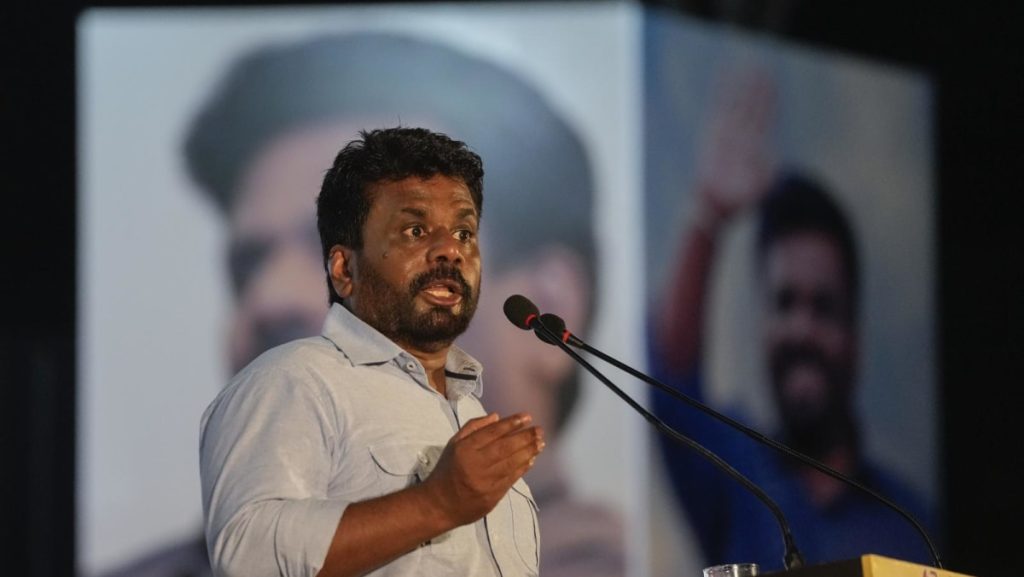Dissanayake, a popular figure in Sri Lanka, has softened some of his policies to be more aligned with an open economy and is not totally opposed to privatization. Despite rumors of nationalizing everything, including cows, Dissanayake clarified that his goal is to help farmers improve and have their own dairies without taking over cows. His manifesto includes plans to improve loss-making state enterprises without selling them off. While he has mended fences with New Delhi and is seen as being close to China, Dissanayake vows not to let Sri Lanka be caught up in the geopolitical rivalry between the two nations.
The 2022 election marked the first election since mass protests over the economy ousted former president Gotabaya Rajapaksa. Sri Lanka faced its worst financial crisis since independence from British colonial rule in 1948, leading to significant challenges for millions in poverty. Despite the hardships, the economy has shown signs of recovery with IMF assistance, expected to grow for the first time in three years and a significant decrease in inflation. Dissanayake has pledged to dissolve parliament within 45 days of taking office to obtain a fresh mandate for his policies in upcoming general elections.
Dissanayake’s focus will be on ensuring Sri Lanka adheres to the IMF program until 2027 to stabilize the economy and ensure sustainable growth. This involves reassuring markets, repaying debt, attracting investors, and helping a quarter of the population out of poverty. With a fragile economy and critical issues such as the high cost of living, the new government will need to implement policies that address these challenges and stimulate growth. Dissanayake will have to navigate the delicate balance between addressing economic concerns and managing geopolitical relationships with powerful nations like India and China.
While Sri Lanka is strategically positioned on global east-west sea routes, it faces the challenge of balancing influence between India and China, both of which are vying for power in the region. Dissanayake’s visits to New Delhi and Beijing demonstrate an effort to establish diplomatic ties with both nations, but he is also faced with the task of ensuring that Sri Lanka does not get entangled in their rivalry. By pledging to keep Sri Lankan territory neutral and not allow it to be used against any other nation, Dissanayake aims to establish a stance of non-alignment and independence in the geopolitical landscape of the region.
The IMF assistance has been crucial in helping Sri Lanka navigate its economic challenges and initiate a path towards recovery. With inflation rates decreasing and tentative signs of growth, the country is slowly moving towards a more stable financial outlook. However, the focus remains on addressing the needs of the population, especially those in poverty. Dissanayake’s promises to dissolve parliament, implement policies to stimulate growth, and ensure the country remains on track with the IMF program are essential steps towards rebuilding the economy and improving the lives of Sri Lankans. Balancing economic reforms with diplomatic relations will be key for the new government as it navigates the complexities of domestic and international challenges.


